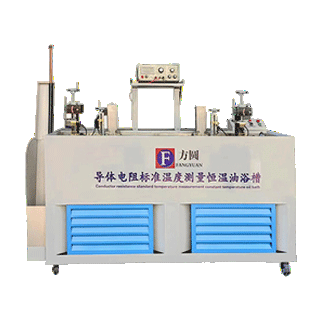universal tensile tester machine
Understanding the Universal Tensile Tester Machine
The universal tensile tester machine, an essential tool in materials testing laboratories, serves a significant role in evaluating the mechanical properties of various materials, ranging from metals and plastics to textiles and composites. This versatile piece of equipment allows engineers and researchers to conduct tensile tests, which ultimately help in determining how materials will behave under different types of stress. Its ability to provide accurate and repeatable results makes it invaluable in quality control and product development applications.
What is a Universal Tensile Tester?
A universal tensile tester is a machine that applies a controlled tensile (pulling) force to a sample material until it deforms or fails. The testing machine typically consists of a testing frame, a load cell to measure applied force, and an extensometer to measure elongation. Adjustments to the machine can be made via computer software, which is crucial for modern testing procedures. The results obtained from the test provide critical data about the yield strength, tensile strength, and elongation of the material under examination.
Key Components of the Machine
1. Testing Frame The robust structure of the testing frame is designed to withstand high levels of stress without deformation. This frame usually contains components such as crossheads and grips to hold the samples securely in place during testing.
2. Load Cell The load cell is a key component that converts the force applied to the sample into an electrical signal. By measuring the load in real-time, it allows technicians to record accurate values of the force exerted on the material.
3. Extensometer This device measures the amount of elongation or strain the material experiences during the test. It provides essential data that influences how materials are utilized in real-world applications.
4. Software Modern tensile testers come equipped with software that aids in collecting and analyzing data during the test. This software can generate load versus elongation graphs, calculate material properties, and help ensure that the results meet specific industry standards.
The Testing Process
universal tensile tester machine

The tensile testing process typically follows these steps
1. Sample Preparation The material sample must be cut to specific dimensions and shapes according to established testing standards, such as ASTM or ISO.
2. Mounting the Sample After preparation, the sample is placed securely in the grips of the testing machine. Proper alignment is crucial to ensure accurate results.
3. Executing the Test The machine is programmed to apply force incrementally until the sample reaches its breaking point. During this phase, the load and elongation data are recorded continuously.
4. Data Analysis Post-testing, the data is analyzed to obtain material properties. The yield strength, tensile strength, and percentage elongation are calculated and often displayed graphically for interpretation.
Applications in Various Industries
Universal tensile testers find applications across multiple industries. In the aerospace sector, they are used to test the strength and flexibility of aircraft materials. In the automotive industry, they evaluate the durability of components such as tires and suspensions. The construction industry relies on these machines to test metal rods and cables for safety and structural integrity. Moreover, the textile industry employs tensile testing to examine the strength and elasticity of fabrics.
Conclusion
The universal tensile tester machine is a vital asset in the realm of material science and engineering. By investigating the properties of materials under tensile stress, it helps manufacturers and researchers ensure that their products meet safety and performance standards. As technology continues to evolve, these machines are becoming smarter and more integral to the innovation process, enabling the development of stronger, more reliable materials across various applications. Whether in a laboratory or an industrial setting, the universal tensile tester remains at the forefront of material testing technology, driving advancements that shape our world.
-
The Role of Tensile Force Testers in Quality Control and Material Science
NewsAug.01,2025
-
Maintenance and Safety Tips for Aging Ovens
NewsAug.01,2025
-
Density Balance in Forensic Science
NewsAug.01,2025
-
Advanced Optical Measurement Technologies
NewsAug.01,2025
-
A Buyer’s Guide to Tensile Test Machines
NewsAug.01,2025
-
Why the Conductor Resistance Constant Temperature Measurement Machine Redefines Precision
NewsJun.20,2025
 Copyright © 2025 Hebei Fangyuan Instrument & Equipment Co.,Ltd. All Rights Reserved. Sitemap | Privacy Policy
Copyright © 2025 Hebei Fangyuan Instrument & Equipment Co.,Ltd. All Rights Reserved. Sitemap | Privacy Policy
